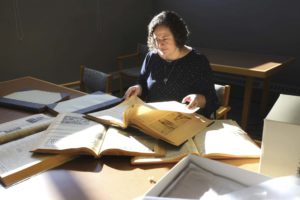
Faith groups struggle to maintain archival collections.
When churches close, congregations are faced with many questions: What happens to the staff? What happens to the remaining members? What about the building?
One question near the bottom of the list may be: What happens to the records?
While it might not be top of mind for churches that are closing, it’s at the forefront for archivists in Winnipeg. With many churches considering shutting down in the next few years, they wonder: Where is all that stuff going to go? And who will pay to process it?
Religious archives can be a diverse repository of faith history. They can include everything from baptismal records to church council minutes; sermons; service bulletins; photos; recordings; letters, diaries and memoirs; church property records; sheet music and hymnbooks; artwork; and, in some cases, sacred items and religious regalia.
“Congregations are closing regularly, and their archival records are coming to us at an unprecedented rate,” said Erin Acland of the United Church of Canada archives at the University of Winnipeg.
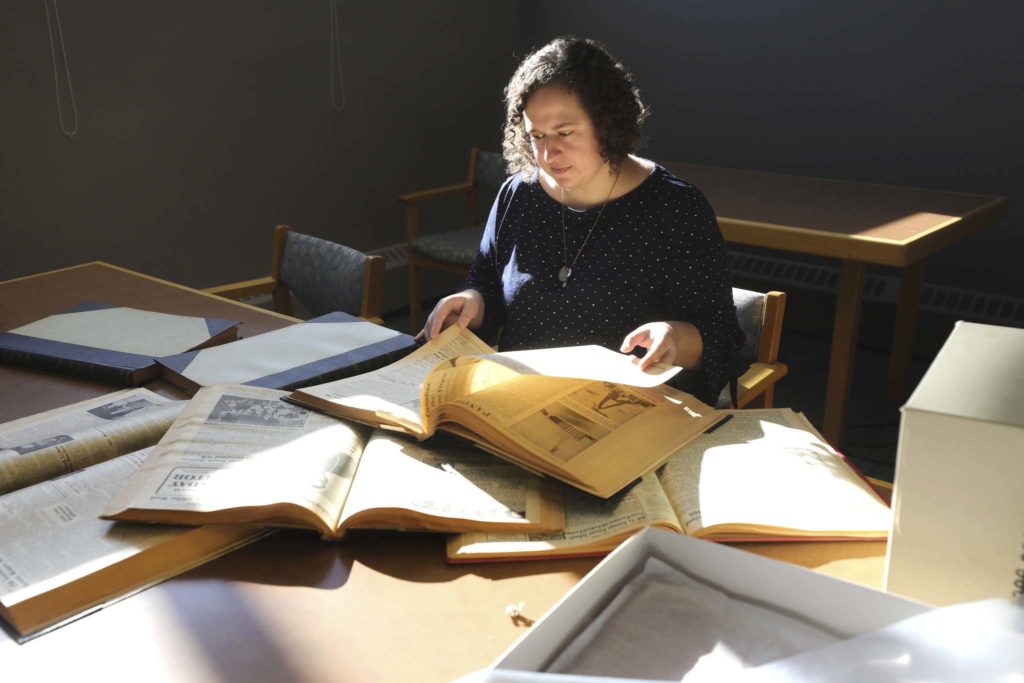
TYYNE PETROWSKI, Director of Archives Archdiocese of Winnipeg, looks through bound historic newspapers Thursday.
“As congregations close, the need for archives increases, but the funding for them diminishes.”
For Acland, the problem is not only space — the United Church archives ran out of on-site storage space in 1996, and now stores about half its collection off-site — but also funding to deal with the new materials being dropped off.
She’s not alone; other religious archives in the province are facing the same problem as churches close or individuals downsize.
“For decades, archivists have made do with very limited funding and support,” she shared. But making do is no longer good enough “to solve some of the big issues we’re facing.”
Something similar is happening at the Roman Catholic Archdiocese of Winnipeg, where Tyyne Petrowski is the director of archives.
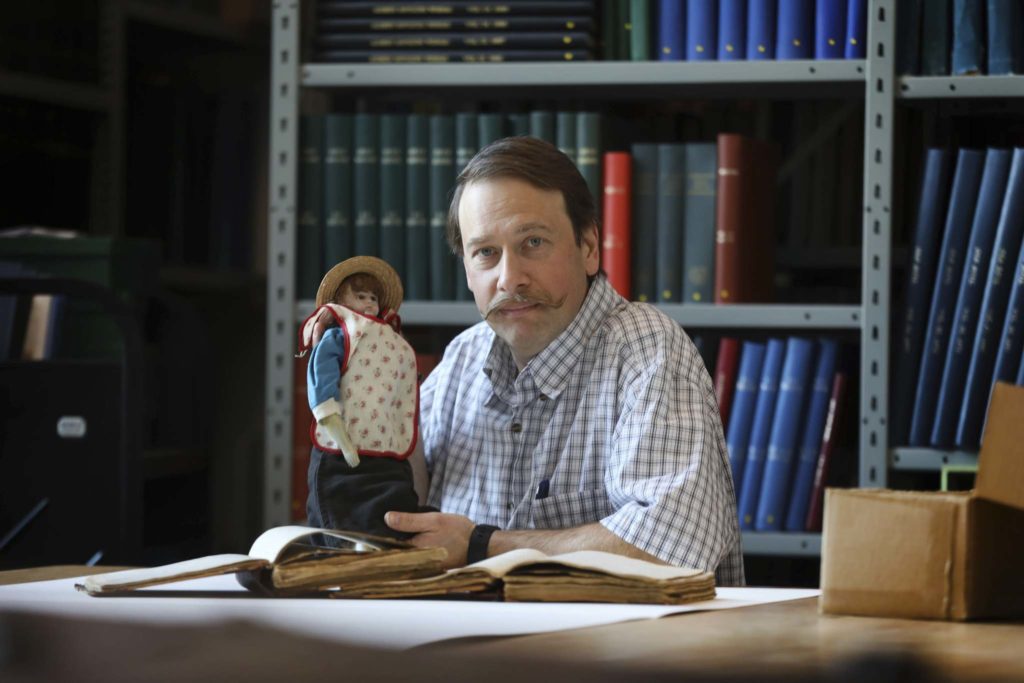
Still Speaking Conrad Stoesz, Archivist, holds a Russian doll from the 1920s that was used to smuggle money out of Russia.
“Space is always a concern for us,” she said, noting some of their collection is also stored off-site.
“It would be much better to have everything on-site, if only we had the space and proper storage conditions to keep them here.”
Any time people want items stored off-site it not only takes more time, she said, but the archive needs to pay a fee.
Added to her challenges is what happens when religious orders close; some may send materials to mother houses in other provinces, but others will expect the Winnipeg archdiocese to look after their records.
At the Jewish Heritage Centre, executive director Belle Jarniewski also struggles to find space for the many items in the collection — more than 70,000 photos, 1,300 sound and moving image recordings, 1,000 textual records, 200 bound volumes of newspapers and more than 4,000 artifacts.
“The urgency is great,” said Jarniewski of the crisis facing her archive. “Some items are becoming very fragile and we can no longer make the originals available to the public. And with an aging population we receive donations of various items all the time.”
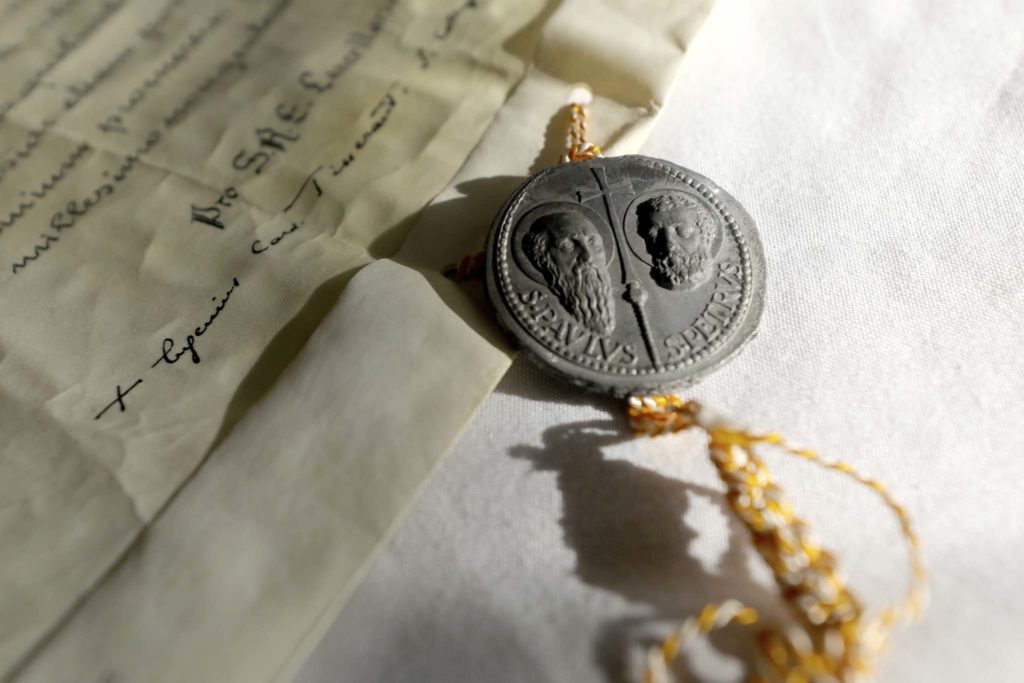
Vestments belonging to Archbishop Sinnott, 1st Archbishop of the Archdiocese of Winnipeg 1915-1952
To meet the challenges, the centre has launched a $2-million fundraising campaign to hire a full-time archivist, make sure the materials are stored properly, and digitize the collections.
For Jason Zinko, bishop of the Evangelical Lutheran Church in Canada’s Manitoba and Northwestern Ontario synod, archives are an ongoing issue.
As congregations close, he says there will be a significant challenge in archiving materials since congregations approach record keeping in different ways.
“We can’t anticipate the kinds of material we could receive, or how well it is documented,” he said, adding they currently store items in three locations.
One thing they likely couldn’t take, he explained, would be furnishings and other objects that are significant to closing congregations — something he knows would be disappointing for many.
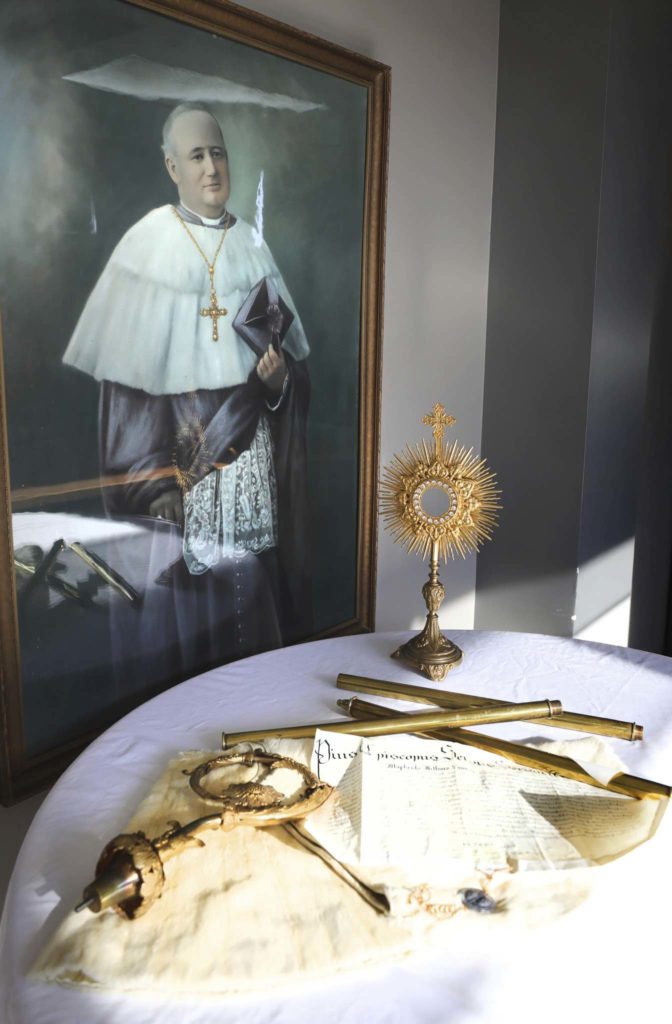
Papal document with metal seal giving a new designation to Archbishop Sinnott in 1952. – Painting on wall of Archbishop Sinnott’s formal portrait.
“I hope that we will be able to strike a balance between what is practical and what allows us to remember and tell our story,” he said, adding finding money to do proper records management and cataloguing of the collection is a challenge.
For him, “maintaining a historical record of who our church has been and how God has been active in our congregations over the years is incredibly important,” he stated. “It is a significant way for us to pass on the story of our ministry with God in our communities.”
Church closures are not a big concern for Conrad Stoesz at the Mennonite Heritage Archives; his challenge is all the material coming from individuals.
“For the first time in history two generations are downsizing,” he said, noting boomers are getting rid of stuff by moving into condos or apartments while their parents are doing the same as they move into assisted living.
He has enough space right now. “The big issue is humidity and proper temperature-controlled environment to store and catalogue things properly,” he noted.
At the same time, he noted a lot of new digital content is being created that needs specialized tagging and cataloguing — along with the expensive software that can access it.
For Gordon Goldsborough, president of the Manitoba Historical Society, the situation facing archives in the province is fast becoming a crisis.
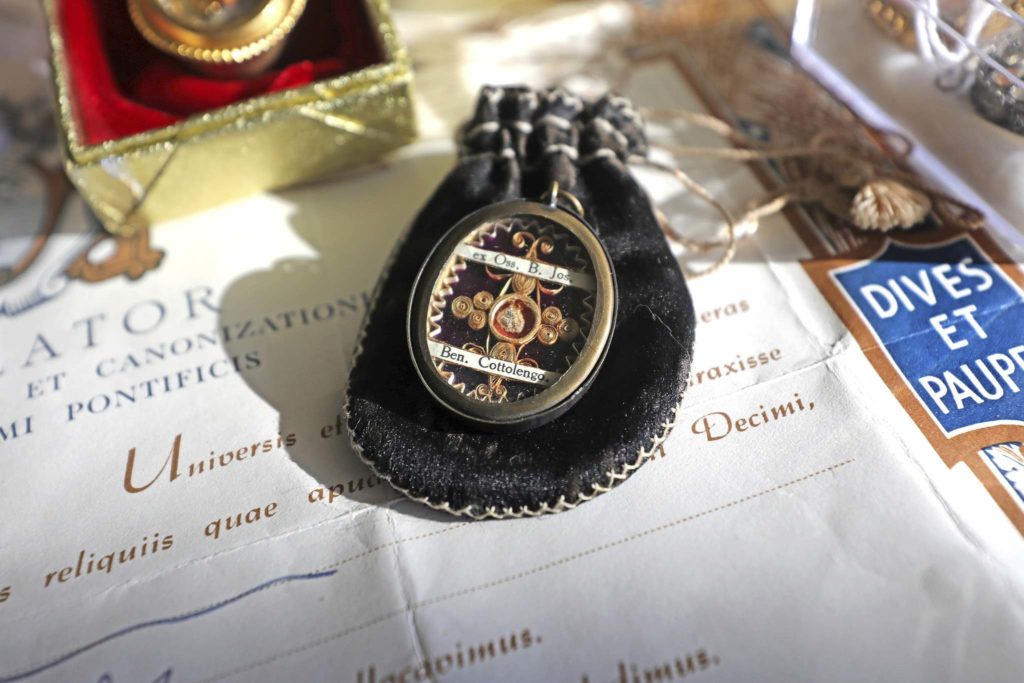
Photo of reliquaries containing fabric, bone, or items related to specific saints and religious figures and Authentication certificates identifying some of the relics contained within the enclosed reliquaries.
“Archives are not a high priority for anyone these days,” he said. “That really worries me. So many things could be turned away.”
He wonders if religious and other archives need to work together — maybe find a building they can share.
“Why not the Bay?” he asked. “Why not build a world-class archive there? It’s structurally solid, large and in a central location. What better place for an archive than a heritage building?”
For that to happen, he said, the provincial government would need to show leadership.
Another option is to re-purpose a church that is closing, he noted — something happening in Kingston, Ont. where the local Roman Catholic archdiocese and two religious orders are turning a closed historic church into a shared archival centre.
But with all the challenges facing many denominations, he knows religious groups are in a tough spot. “Archives aren’t essential to their core mandate,” he acknowledged, noting there are many other frontline ministries they need to support.
Even though things are dire, Acland hopes there can be a resolution to the challenges facing religious archives so they can remain accessible to the public.
“I cannot understate how incredible our archival collection is,” she said, noting it holds unique insights into the history of the people from over 600 communities in Manitoba and Northwestern Ontario since 1838.
Added Petrowski: “It’s easy to say that you can’t afford something, until you need to trace something for legal, historical, cultural purposes. Then, in those cases, you can’t afford to not to have an archival program.”
by John Longhurst, Faith reporter, Winnipeg Free Press
February 14, 2020
faith@freepress.mb.ca
* To see this article on the Winnipeg Free Press website please click here.
